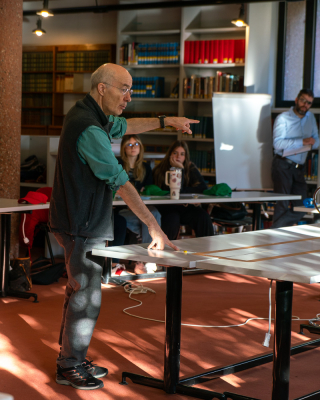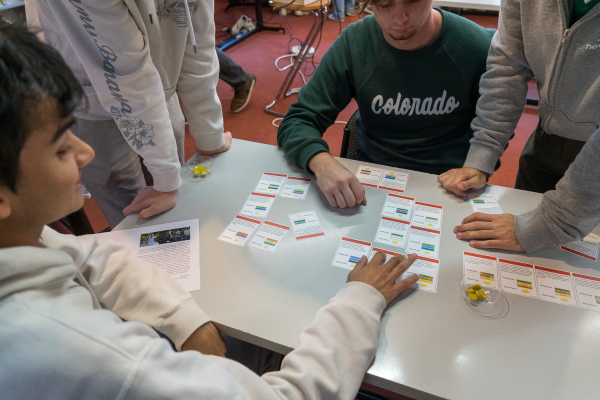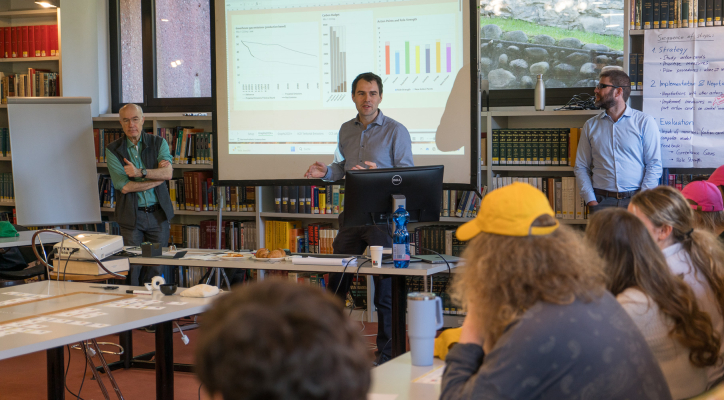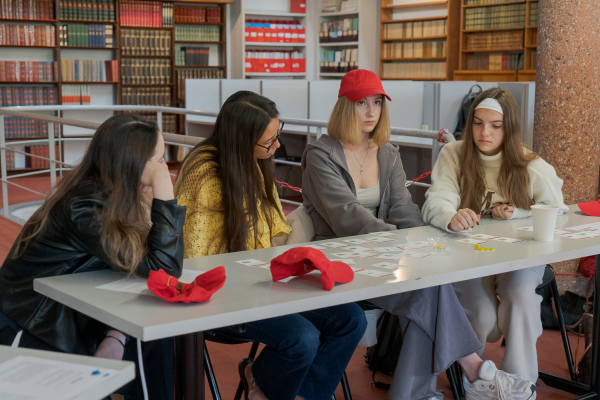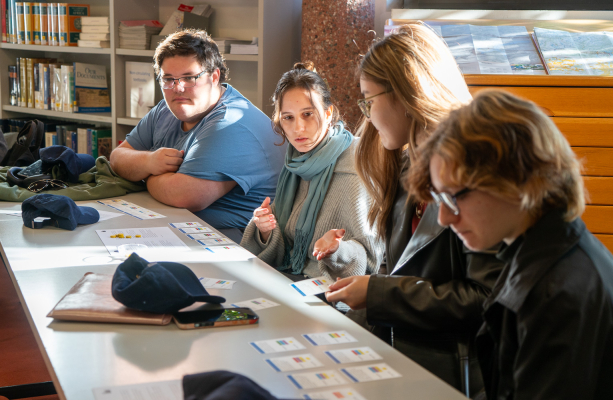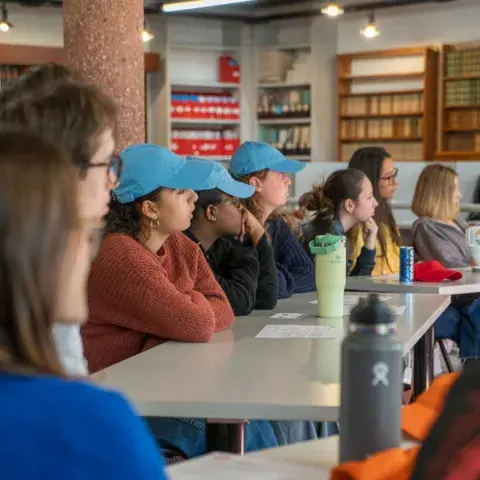
First Year Seminars engage in climate change solutions through a simulation game co-led by Dr. Ulrich, Profs. Della Croce and Schultz, involving the FYS courses of Profs. Miniero (Marketing), Toivonen (Psychology), Piccinelli (Environmental Studies), and Schultz (Management).
What is the First Year Seminar?
The First Year Seminar (FYS) is for first-year students. Each student is assigned to a three-credit, semester-long course with a professor and an academic mentor to support you through the semester. this is aimed at creating a relationship with your professor who will become your academic mentor as well as getting to meet new students with similar academic interests. The assigned academic mentor is an expert in their field and aims to guide, support, and help the new students navigate and adapt to their new environment. This class is a great way for students to ease into their new environment as well as the challenges of university-level coursework.
DANGER! The climate crisis is worsening and spiraling out of control. How can we budget our time and resources to mitigate climate change before it is too late? This is the question that many Franklin University Switzerland students aimed to answer while participating in the PostfossilCities simulation game. The activity walks students through real-world solutions to solve carbon emissions problems. As a part of the simulation, students were asked to play in a fictitious Swiss city where they were divided into different actor groups (politicians, energy industry, planners, etc.). Each actor group received playing cards containing real-world solutions for combating carbon emissions. Students were required to stick to their carbon budget, collaborate with other actor groups, and, finally, help reduce emissions. Some playing cards included imposing heavy taxes on fossil fuels, transitioning to hydrogen cars, and incorporating more public transportation into cities.
The ultimate goal of the simulation was for students to experience the challenges of shaping climate protection strategies in a world constrained by limited resources and time. Because of this, they were required to work urgently and consider the real possibility of climate change through the lens of the professional, private, and citizen scope, all while incorporating social actors.
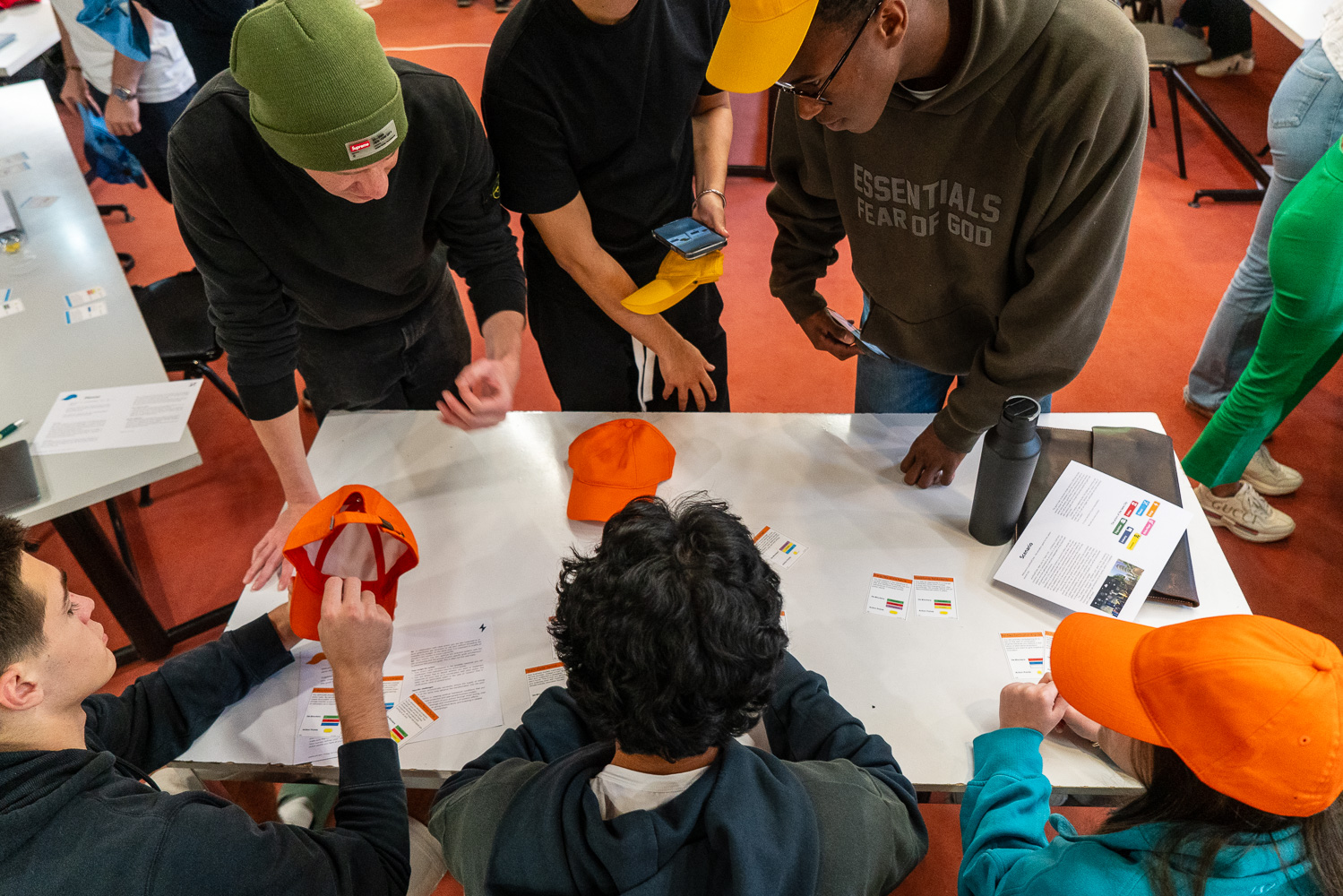
Students were challenged to negotiate and challenge other actor groups by negotiating using playing cards. In each game, there was a sense of competition, as the students insisted that their card was the most optimal one to play. This fostered a single-team mindset, but Dr. Ulrich insisted that in order to make a difference with climate change, society must work together. Additionally, Dr. Ulrich emphasized the importance of students learning while having fun as part of efforts to make the world more sustainable. This is one of the advantages of developing the simulation. The students learn firsthand about the immediate solutions that have long-term effects on the earth.
Due to Franklin's multicultural background and diverse student body, the students provide new and foreign perspectives. Dr. Ulrich stressed the importance of playing these games with universities. He continued, "It's helpful to meet young people, future decision-makers, and inform them about the impact and possibilities to mitigate climate change." Following the simulation, the students described the experience as a wake-up call, adding, "Every day, we do not think about the world around us." According to the participants, this "fun," exciting, and knowledgeable simulation" game gave the students a unique opportunity to gauge their environmental impacts from a new perspective. In the end, Ulrich stated that the only way to win the simulation was to work collectively to mitigate climate change before it is too late.
Funded by the Swiss National Science Foundation, Dr. Ulrich and his colleagues spent many trials mastering the models and conquering challenges. Dr. Ulrich now travels to various universities, teaching "future decision-makers" to expand their audience and foster collaborations.

Written by: Alexandria Fraser, George Whittaker Curry, and Jesse Fioranelli Jr.


